‘Consolidation of society around the leader is the key result of the vote’
Participants of the Volga Expert Club discussed the results of the Russian presidential election
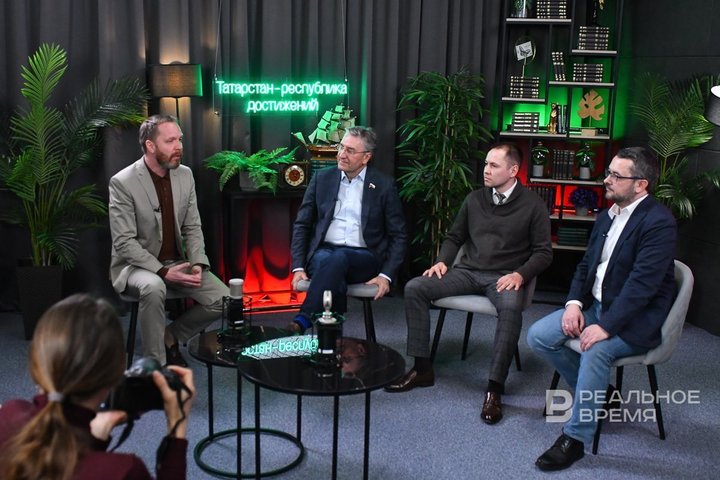
“Everyone wanted to express their position on the situation that is happening in the world today," the participants of the Volga expert club explained the high turnout of Russians in the last presidential elections. Summing up the results of the campaign, the experts discussed the voting process in Tatarstan and Russia, public and international observation, the results of the candidates from the parties and the reaction of society to Vladimir Putin's victory. Read the details in the material of Realnoe Vremya.
“How can one defeat a nuclear country with the greatest potential on the battlefield?"
Sociologists predicted a high turnout in these presidential elections, as polls showed that society is consolidated and understands the importance of the event and the support of the national leader. With these words, the moderator of the meeting, the director general of Darwin Theory agency, Vladimir Kutilov, opened the meeting of the club last Friday. The political consultant also asked his guests what they thought about this and how they explained such results.
Tatarstan State Duma Deputy Airat Farrakhov was the first to take the floor, linking the high turnout of Russians to the fact that “everyone wanted to express their position on the situation that is happening in the world today”.
“Let's remember the time when the president of Russia addressed the nation at the beginning of the special military operation. Believe me, for many it was a shock. A huge number of people packed their bags and literally flew away in one or two days, and many were still thinking. A very large group of people were aloof from the situation and was thinking over. Two years have passed, during which we received 19 thousand sanctions. We hear absolutely incredible statements by the leaders of large states about victory on the battlefield of a nuclear country. How can this be done? It's unclear. How can a nuclear-armed country with the greatest potential on the battlefield be defeated?" the speaker asked a rhetorical question.
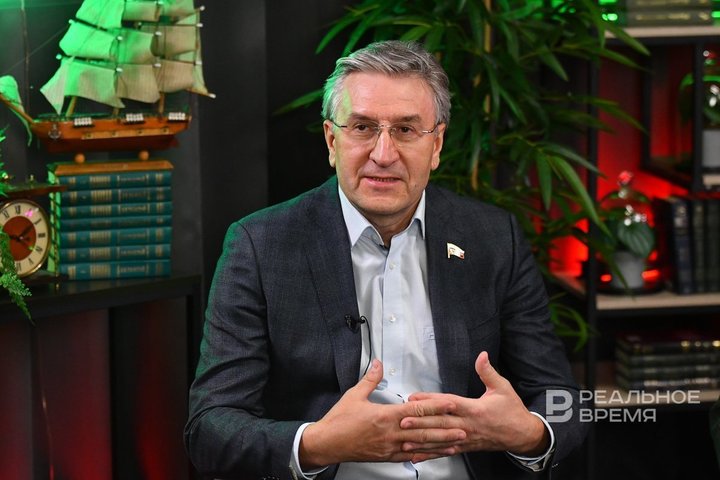
Then he recalled the politicians who stated that they initially knew that no one would implement the Minsk agreements. He spoke about the assessment of the situations that led to the “collapse of a huge country”. In his opinion, for the first time this hybrid policy was used in Belgrade, when Yugoslavia collapsed and a huge number of people died:
“By these elections, people realised that a lot depends on their position. They realised that we had to express it. Even if it is not a position on the election of a particular leader, but the very participation in these elections is a personal position. If I don't go, then I don't have a position. This explains the fact that almost 400 thousand people stood in queues and voted outside Russia. And we know that a very large number of people did not have time to vote, because they had to close the sites, but they stood until the last.”
By voting in these elections, everyone could show their attitude to the pressure on our country, to the situation in Ukraine. “The whole of Europe, the United States, the whole Western world just want to dismember this country, leave the people who have always been with us, the brotherly people, without a future," Airat Farrakhov believes. At the same time, the youth also wanted to express their position in relation to what is happening — this explains their active participation in these elections, he noted.
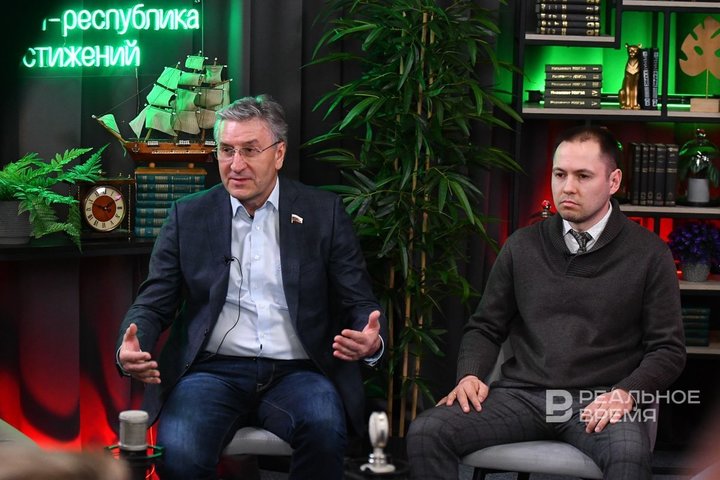
“Enemies, friends — totally everyone admits that the turnout was extremely high”
This idea was developed by the chairman of the executive committee of the Tatarstan regional department of the All-Russian public organisation Association of Lawyers of Russia, Timur Kakokho: “In conditions when we are told in advance: 'Your elections are unfair, invalid, we do not recognise them,' in my opinion, a certain electoral immunity has worked for the population. That is, it is a response when people came in defiance and showed the whole world that they really decide the fate of their country, cast their vote, and our country is sovereign and independent from the interference of any states. I think this is a key factor.” Moreover, it was important for those people who say that they usually do not go to the polls, that they are not interested in politics, but this time they did go to vote, the speaker noted. At the same time, he told about the students who, outside the work of the Public Monitoring Center, came to the polling stations to observe the voting process. They were most surprised by the number of people who came to vote from morning to evening.
Vladimir Kutilov cited the results of new sociological research, which showed that 83% of respondents trust the results of these elections: “In my memory, there has never been such a high figure for trust in the honesty of the results. Because there are always a lot of skeptics. In fact, we now have a situation in which enemies, friends, just totally admit that the turnout was extremely high. Queues at polling stations abroad also demonstrate this consolidation. We have a completely unique result — Vladimir Putin wins there in total, despite that there are, of course, many people who disagree with the policy of the state.”
The moderator also briefly focused on how the results of the elections in Russia are recognised by the leaders of Western countries: “We understand, if we discard Germany's not very adequate position, slowly all countries understand that with such a consolidation of society it is impossible not to recognise the result.”
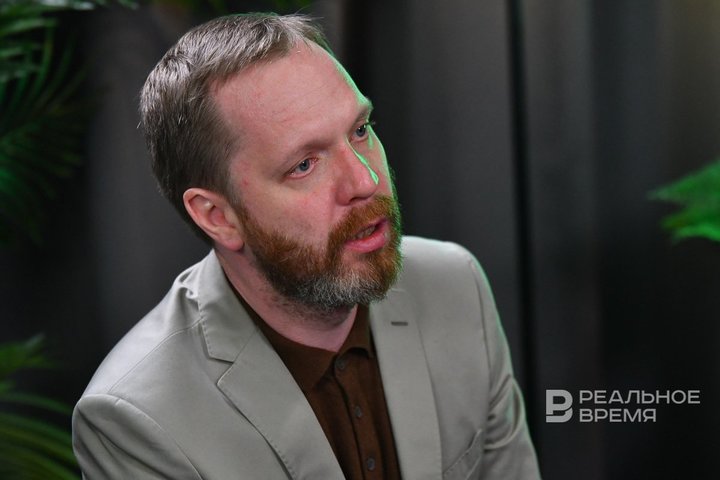
“People entrusted the fate of the country to our leader with their votes”
Marsel Gilmeyev, the head of a separate division of the Dialogue Regions NGO in the Republic of Tatarstan, said that for a long time while his team was monitoring the information field, interesting results were obtained. Since the beginning of the year, about a thousand newsworthy events have been recorded, which in one way or another were devoted to the elections. A large block was occupied by information about the voting procedure and the possibilities of the electoral system. First of all, this is the Mobile Voter project, which allowed people to vote where it is convenient for them, and not only at their place of residence. Over 108 thousand Tatarstan citizens used the service. Another large project concerned the work with the house-to-house canvassing of residents of the republic, who were informed about the possibilities of voting and the addresses of polling stations.
“Besides, we saw the great work carried out by the Central Election Commission of the Republic of Tatarstan in the person of its head Andrey Stanislavovich Kondratiev, who spoke every day either with a press conference, or in an interview, or at some round table discussion, or somewhere else with information about what awaits voters in the near future, what changes and opportunities are there," the expert said.
A large layer of information was devoted to the project “The whole family to the elections”, which included the drawing of three cars among active voters. According to the organisers, more than 80 thousand applications from Tatarstan families have been received. The speaker noted one of the most striking comments: “People said they had never voted, but they come considering what is happening around our country and in it now. People, in fact, entrusted the fate of the country to our leader Vladimir Putin with their votes.”
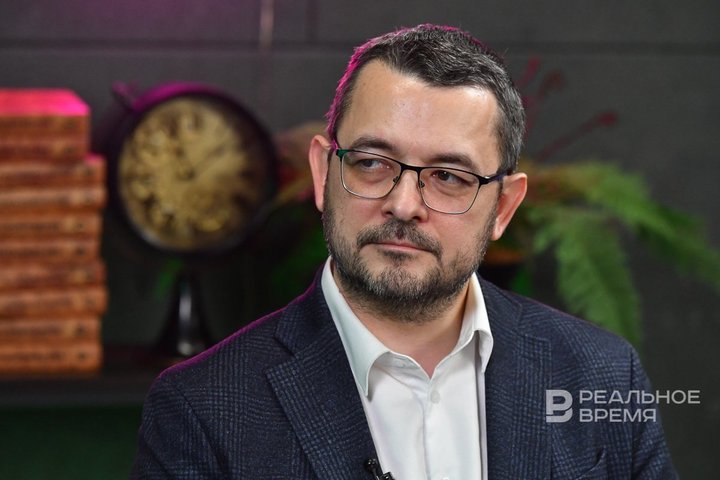
Speaking about the reasons for the high turnout, he cited data from surveys: people said they saw the state as socially oriented, strong, successful and independent. Many of the tasks from the president's address were related to the realisation of these interests, he stressed.
They talked about attempts to interfere with the elections with various provocations. Experts recalled cases when voters came to polling stations with a green card, spoiled the ballots, but in general, they noted, the voting was on top. And in Tatarstan, no serious violations were detected. One case was called rather a curiosity, when a citizen at a polling station began to ask voters who they were voting for, but observers quickly reacted and stopped the violation.
“It was a benchmark election," said Airat Farrakhov and told how he voted in the village. Traditionally, villagers come to the sites in the morning to free up time for other things faster. “The highest responsibility”, according to him, was also shown by students who specially came from the cities to vote in their native village. He also watched how familiar colleagues voted in Moscow, where they actively used the possibility of remote voting. The indicator of confidence in the elections of the population — 83% — is a fantastic result, he noted.
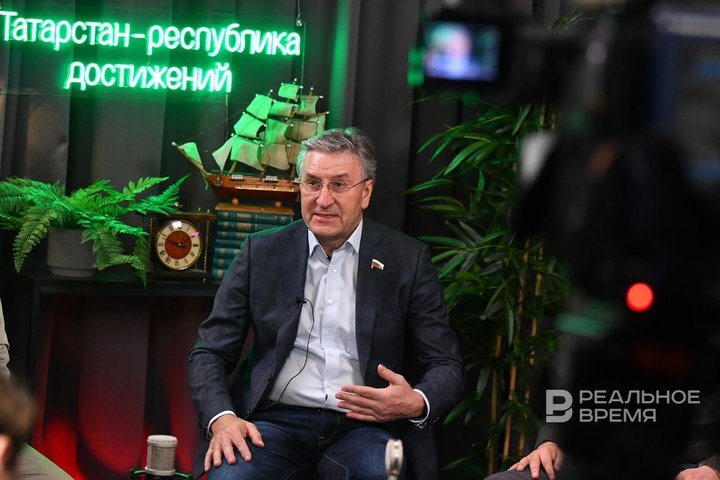
Timur Kakokho noted that, in general, the Institute of Public Observation in Russia has been formed: “From year to year, the observation community is growing stronger. We conduct training and see familiar faces every year. This is good news. It is thanks to our professionalism and level of training that we have achieved such good results in our work.”
“When we observed the information field, we also drew attention to a large number of materials devoted to the work of observers, including international ones. Upon returning from the polling stations, they talked about the elections not only at home, in the kitchen, but also shared this information on social networks. I think this also had an impact, because reflecting information through the eyes of an observer is also important for people," added Marsel Gilmeyev.
“If Russia's leaders had been more tough back then, maybe things would have been different”
They talked about the results of voting for candidates and their programmes, and what kind of reaction they received from citizens. “For me, in this sense, Kharitonov's result — the second place — was not a surprise, because all the studies talked about it," Vladimir Kutilov noted. At the same time, he called the result of Vladislav Davankov, who represents the young New People party, which certainly has potential, indicative. According to Airat Farrakhov, United Russia has once again shown that it is not just a majority party, but a party that meets the interests and demands of people:
“As for the Communist Party, they are gradually losing their electorate. Whether it's a matter of generational change, or generational change in the party itself, or new initiatives and values. New People are really interesting people. They will have their voters. And by 2026, I think we will see enough movement.”
There is another important election campaign ahead — to elect deputies of the State Council of the Republic of Tatarstan in September. The candidates' results will depend on how their programme points will meet the specific needs of voters, the experts stressed.
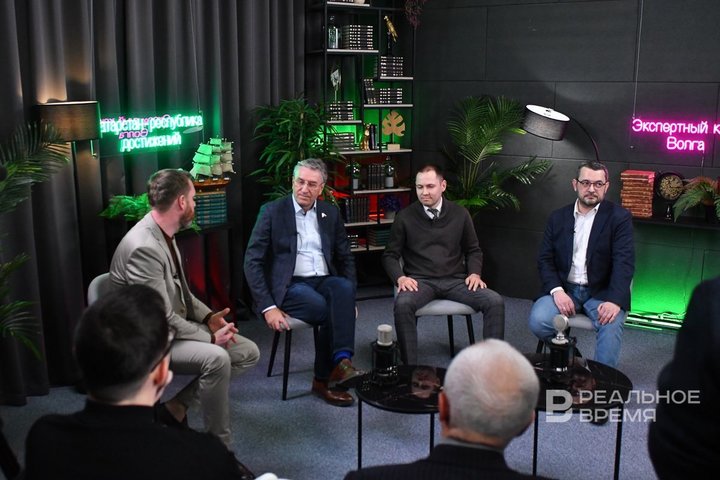
“The last elections put a very bold exclamation mark on the issue of self-determination of a society that has the right to make independent decisions about its future and values. The consolidation of society around the leader and the fact that society has demonstrated unity and willingness to express an opinion, to become like-minded, is probably the main, key result of the last vote," Vladimir Kutilov stressed in conclusion.
“Churchill has an expression: if you choose between shame (true, shame is called dishonour) and war and want to avoid war, you will get both shame and war. Let's recall the situation with Yugoslavia. The maximum that Russia did then was the Primakov loop — he turned away and flew away. Brazenly, the Western world and NATO bombed the country for 70 days, our Orthodox brothers. If Russia's leaders had been more tough back then, maybe things would have been different! But then there was a position to avoid a war, but in the end, the war came anyway," said Airat Farrakhov.
The expert explained that we cannot conclude agreements with ourselves, but must be principled to the end. This principle is recognised by many today. And this is the basis for that people came to the polls and expressed their position by voting for a strong leader, a strong country and economy.